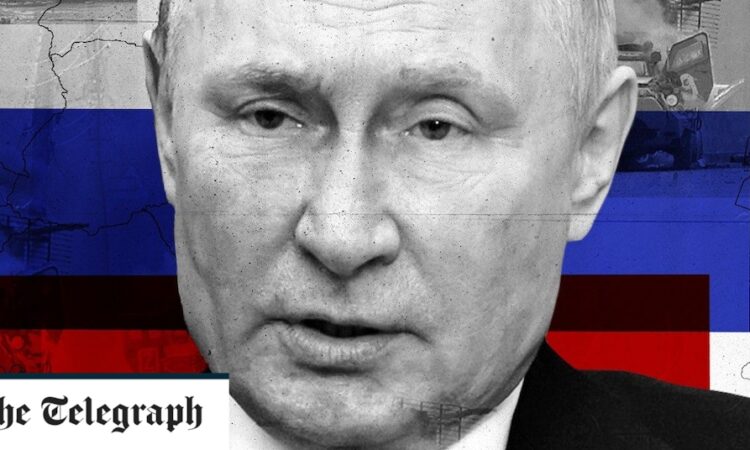
The International Energy Agency says Russian Urals crude traded at average of $52 over the first quarter, half the level of a year ago and a $25-30 discount against Brent.
The democracies control 90pc of the world’s tanker fleet through direct ownership or through financing and the P&I club that covers complex spill liability for shipowners, at $1 billion a shot. Without insurance you cannot take these floating firebombs through the Oresund or the Bosphorus, or enter most of the world’s ports.
Putin can export as much oil as he wants in G7-controlled ships so long as he complies. He vowed defiance, issuing a decree prohibiting the sale of Russian crude to any entity abiding by the G7 cap.
It was an implicit threat to withhold 4pc of the world’s supply of crude. In the end, Putin meekly complied. He does not have the money to sustain a long oil war, and he cannot risk permanent damage to his oil fields (already in trouble).
Putin is of course free to sell seaborne oil at any price to China, India, or any country using ships outside the G7 nexus. Trafigura says he has collected a “shadow fleet” of some 500 ships, drawing on a network of global shell companies using old tankers that operate with their transponders switched off.
Using this dark fleet comes at a stiff cost. Some 80pc of Russia’s tanker exports of crude and its products leave western ports in the Baltic and the Black Sea. The system was designed to supply Europe.
The round-trip from St Petersburg to Hamburg takes six days. The round-trip to Shanghai takes 90 days, with freight rates, crew fees, and bunker fuel costs to match. There is a further snag: Russian ports cannot handle Suezmax supertankers. The oil has to be shipped in smaller Aframax tankers, and is then transferred to the big beasts at semi-clandestine spots, off Ceuta and off the Greek Peloponnese.
This may be an ecological nightmare but it is not a breach of sanctions – unless operations are a front for Greeks shipowners, as Ukraine alleges – but it is not a failure of G7 policy. It costs Putin an extra $12 a barrel to reach markets in Asia.






